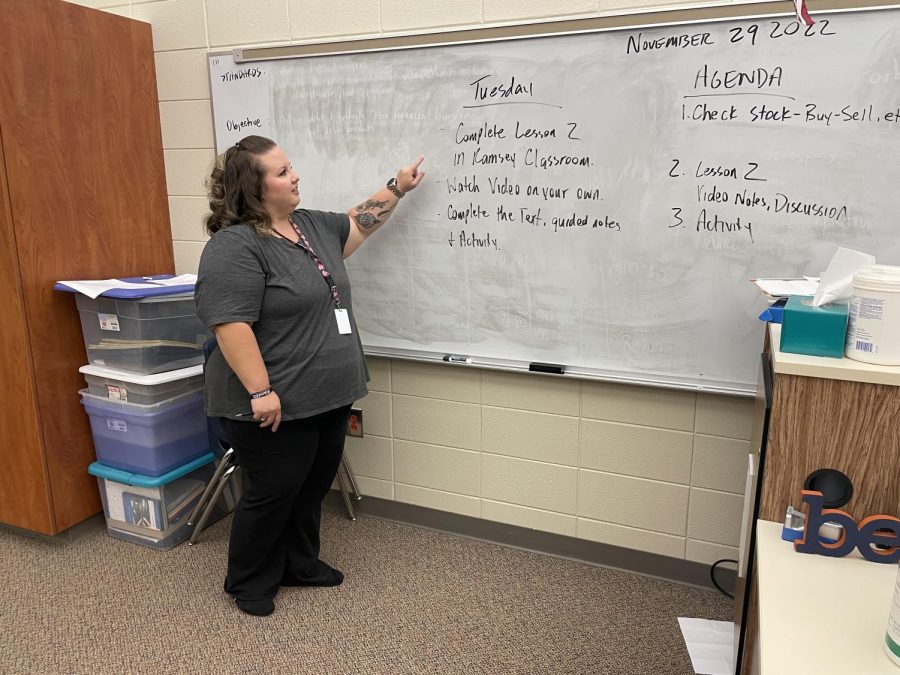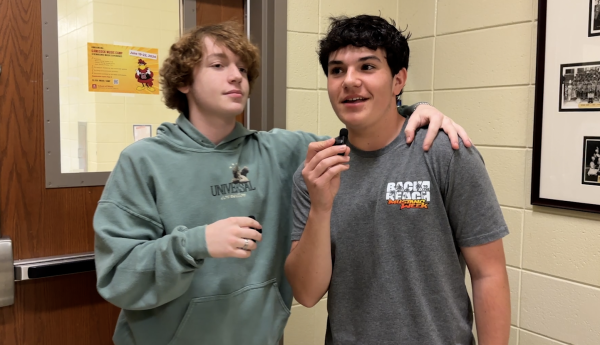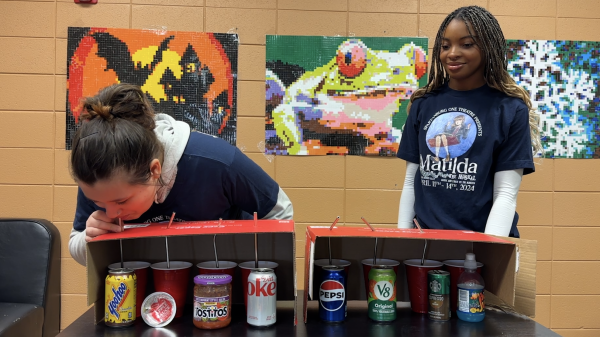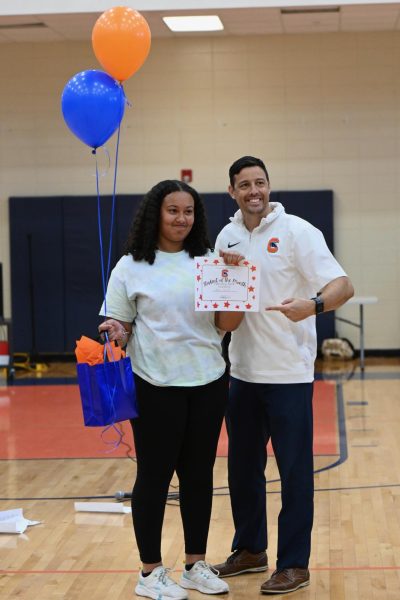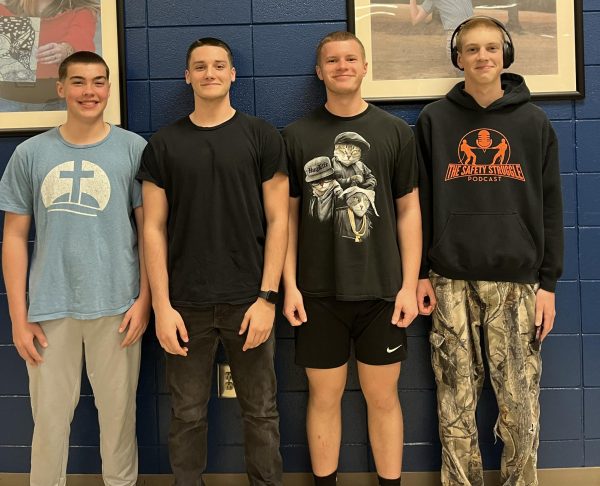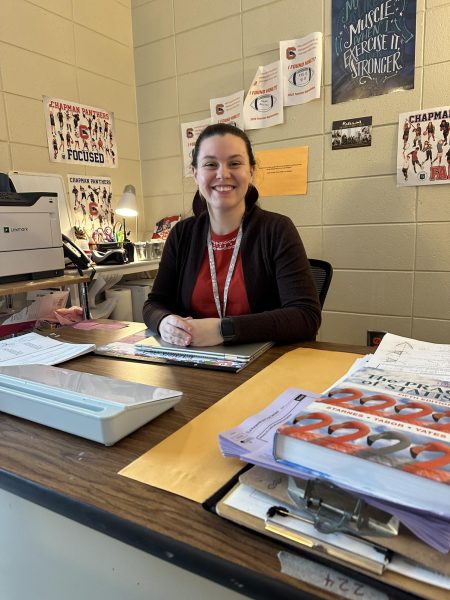Chapman continues battle against substitute shortage
Substitute teacher Jessica Neeves directs students on how to complete their work in Kyle Bishop’s class. Neeves continues to sub despite the national substitute teacher shortage.
A school system has multiple essential positions that make it able to function.
One of the most important and overlooked is substitute teachers.
Substitutes are there to step in and look after a class when the teacher isn’t there for a day.
At least, they used to be there.
Chapman, like other schools around the country, is struggling with a substitute shortage.
Assistant Principal Matt Davis is the administrator responsible for making sure that all classes are covered, a job that has become increasingly complex.
Davis said that before the pandemic, there were four or five regular substitutes, several of whom were elderly and chose not to return, leaving Chapman with a much smaller pool.
David Jamison has been a regular substitute for more than 10 years, and although he splits his time among multiple schools, he can often be found at Chapman.
He said one of the things that keeps him around is his love for students.
“(I come back because I know) that there is a need, and I get to come to school every day and try to make a positive influence,” Jamison said. “It’s always the kids that keep me going.”
Jessica Neeves is another substitute who has continued to work during this difficult time.
“I have continued to be a substitute teacher because I enjoy helping out and being able to fill in when someone needs to step out,” she said.
With few substitutes available to cover classes, Davis has turned to faculty members.
“Probably one of the most frustrating things I have to do is ask teachers to cover a class,” Davis said. “I hate doing that.”
Teachers cover, on average, approximately four full class periods per semester. Asking teachers to cover for others is not only frustrating but can also lead to problems when teachers and students are unfamiliar with each other.
“It changes the dynamic, and certain students, it affects them more than others,” Davis said.
Davis is hopeful that the practice of asking teachers to cover for other teachers will be temporary.
“I really appreciate everybody pitching in, and for the future, I hope we can get this shored up quickly,” he said. “I know there are some things in the works to try to curb this.”
Davis said he believes that the substitute shortage is tied to a labor shortage that’s reverberated across the country over the last year. That’s of little comfort, however.
“I think if you go anywhere, you observe the same things, but of course, my concern is here and the staff here,” he said.
Alleviating the shortage is difficult but not impossible, according to Davis.
“I just think that there’s a lot of variables,” he said. “I think money is an issue. I think we’ve got to really look at how we pay them, what we pay them. And recruit. Even if we raise the pay, if we don’t let them know that we’ve raised the pay, then they’re not going to get in here. We’ve got to find some people who are loyal and take care of them.”
For those who have been willing to step up during this shortage, Davis has nothing but gratitude.
“Thank you, thank you so much,” he said. “I appreciate you.”
Your donation will support the student journalists of Chapman High School. Your contribution will allow us to purchase equipment and cover our annual website hosting costs.

